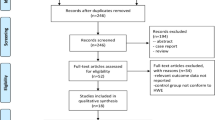Abstract
Background
It has been reported that up to 80% of human cancer arise as a consequence of environmental exposure and host susceptibility factors. Environmental carcinogens are predominantly metabolized by the cytochrome P450 (CYP) superfamily of drug-or xenobiotic-metabolizing enzymes. Genetic variations in these enzymes affect individuals' susceptibility to carcinogens.
Aim of the study
The aim of this study was to evaluate the relationship between CYP2C19 polymorphism and susceptibility to these cancers by means of CYP2C19 genotyping among Turkish subjects.
Methods
DNA of subjects were isolated from leukocytes by high pure template preparation kit (Roche Diagnostics, GmbH, Mannheim, Germany) and genotypes were detected by LightCycler CYP2C19 Mutation Detection Kit by real-time PCR with LightCycler instrument (Roche Diagnostics, cat. no. 3113914).
Results
Being male was associated with a 3.5-fold (OR: 4.27, CI: 2.27–8.05) and 4.27-fold (OR: 3.50, CI: 1.948–6.301) risk for colorectal and gastric carcinoma, respectively. The CYP2C19 * 3 heterozygote genotype was not found in either gastric or colorectal carcinoma patients. Although the frequency of CYP2C19*2 heterozygote genotype is high in patients with gastric and colorectal carcinoma, it is not significantly associated with cancer (OR: 1.79, CI: 0.829–3.865 and OR: 1.998, CI: 0.961–4.154, respectively).
Conclusion
Although the frequency of CYP2C19 * 2 heterozygote genotype is high in our patients with gastric and colorectal carcinoma, there is no the relationship between CYP2C19 polymorphism and susceptibility to these cancer.
Similar content being viewed by others
References
Saadat I, Saadat M. Glutathione S-transferase M1 and T1 null genotypes and the risk of gastric and colorectal cancers. Cancer Lett, 2001;169:21–26.
Modugno F, Knoll C, Kanbour-Shakir A, Romkes M. A potential role for the estrogen-metabolizing cytochrome P450 enzymes in human breast carcinogenesis. Breast Cancer Res Treat, 2003;82:191–197.
Miller, JA, Miller EC. Some historical aspects of N-aryl carcinogens and their metabolic activation. Environ Health Perspect, 1983;49:3–12
Nelson DR, Koymans L, Kamataki T, et al.. P450 superfamily: update on new sequences, gene mapping, accession numbers and nomenclature. Pharmacogenetics, 1996; 6:1–42.
Xie HG, Kim RB, Wood AJ, Stein CM: Molecular basis of ethnic differences in drug disposition and response. Annu Rev Pharmacol Toxicol, 2001;41:815–850
Shi WX, Chen SQ. Frequencies of poor metabolizers of cytochrome P450 2C19 in esophagus cancer, stomach cancer, lung cancer and bladder cancer in Chinese population. World J Gastroenterol, 2004;10:1961–1963.
Agundez JA. Cytochrome P450 gene polymorphism and cancer. Curr Drug Metab, 2004;5:211–224.
Brockton N, Little J, Sharp L, Cotton SC. N-Acetyltransferase and colorectal cancer: a huge review. Am J Epidomiol 2000;151:846–881.
Rooney PH, Murray GI, Stevenson DA, Haites NE, Cassidy J, McLeod HL. Comparative genomic hybridization and chromosomal instability in solid tumours. Br J Cancer 1999;80:862–873.
Howson CP, Hiyama T, Wynder EL. The decline in gastric cancer: epidemiology of an unplanned trium ph. Epidemiol Rev 1986;8:1–27.
Katoh T, Boissy R, Nagata N, et al. Inherited polymorphism in the N-acetyltransferase 1 (NAT1) and 2 (NAT2) genes and susceptibility to gastric and colorectal adenocarcinoma. Int J Cancer, 2000;85:46–49.
Suzuki S, Muroishi Y, Nakanishi I, Oda Y. Relationship between genetic polymorphisms of drug-metabolizing enzymes (CYP1A1, CYP2E1, GSTM1, and NAT2), drinking habits, histological subtypes, and p53 gene point mutations in Japanese patients with gastric cancer. J Gastroenterol 2004;39:220–230.
Tanaka E. Update: genetic polymorphism of drug metabolizing enzymes in humans. J Clin Pharm Ther, 1999;24: 323–329.
Wadelius M, Autrup JL, Stubbins MJ, et al. Polymorphisms in NAT2, CYP2D6, CYP2C19 and GSTP1 and their association with prostate cancer. Pharmacogenetics, 1999;9: 333–340.
Roddam PL, Rollinson S, Kane E, et al. Poor metabolizers at the cytochrome P450 2D6 and 2C19 loci are at increased risk of developing adult acute leukaemia. Pharmacogenetic 2000;10:605–615.
Sachse C, Smith G, Wilkie MJ, et al. A pharmacogenetic study to investigate the role of dietary carcinogens in the etiology of colorectal cancer. Carcinogenesis, 2002;23: 1839–1849.
Chau TK, Marakami S, Kawai B, Nasu K, Kubota T, Ohnishi A. Genotype analysis of the CYP2C19 gene in HCV-seropositive patients with cirrhosis and hepatocellular carcinoma. Life Sci, 2000;67:1719–1724.
Author information
Authors and Affiliations
Corresponding author
Rights and permissions
About this article
Cite this article
Tamer, L., Ercan, B., Ercan, S. et al. CYP2C19 polymorphisms in patients with gastric and colorectal carcinoma. Int J Gastrointest Canc 37, 1–5 (2006). https://doi.org/10.1385/IJGC:37:1:1
Issue Date:
DOI: https://doi.org/10.1385/IJGC:37:1:1




